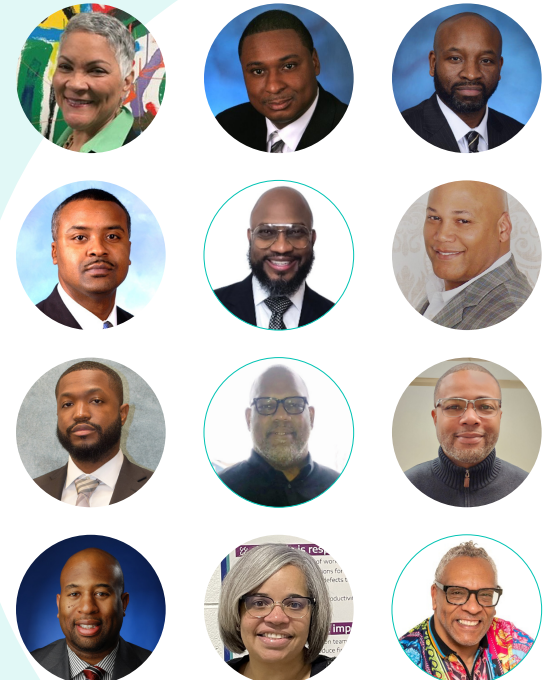News
COMMUNITY STORIES
April 13, 2023
Honoring the Black leaders who keep our plants running
During Black History Month, we celebrated leaders in Manufacturing, Human Resources and Labor Relations. They each play an integral role in building some of our most important, award-winning products. Read about how their unique life experiences helped shape the careers below:
Lamarcus Keels
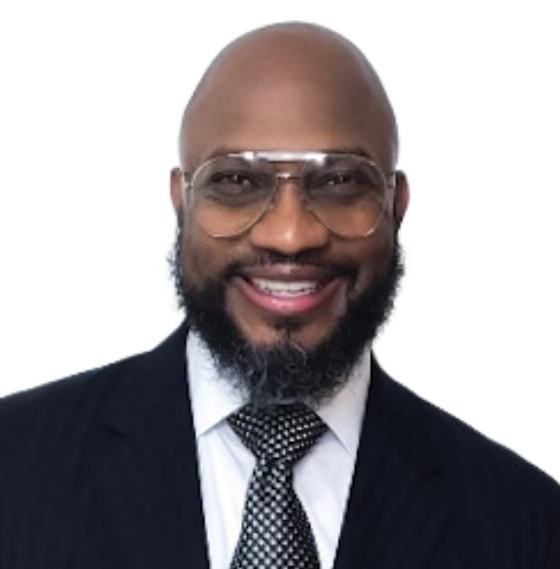
Keels, who was recently named Dundee Engine plant manager, believes the key to coaching his employees is by addressing difficult conversations head on, an idea that stemmed from a company initiative – Courageous Conversations.
“With all the social injustice in the world, the company’s emphasis on diversity, equity and inclusion has been more profound and greater than it was previously,” Keels said. “Social injustices are still happening and impact us day-to-day. Courageous Conversations are necessary to foster greater understanding, awareness and trust.”
A pastor at a church in Flint, Mich., outside the plant, Keels is an Army veteran, who attended West Point Military Academy and served three years of active duty before returning to his home state of Michigan where he serves in the National Guard.
Keels kicked off his automotive career in 1998 with GM at the Warren Powertrain plant. He left GM to join what was then Chrysler as the central maintenance manager at the Kenosha, Wisconsin, Engine plant, where he worked his way up to manufacturing engineering manager. When the Kenosha plant closed in 2010, he moved back to Michigan and took the role of manufacturing manager at the Trenton South Engine Plant, helping launch the facility and achieve the bronze award level in the company’s production methodology. In 2013, he was promoted to plant manager at Mack Engine where he launched the Pentastar Upgrade engine expansion. He returned to the Trenton Engine Complex as the plant manager of the South Plant where stayed until 2019 before assuming plant manager responsibilities at the North Plant.
Keel’s advice to young people kicking off their careers? Be true to who you are.
“So often we can get caught up in the hustle and bustle of the everyday that we lose sight of who we are – and that makes the difference,” Keels said.
James Gholston Jr.
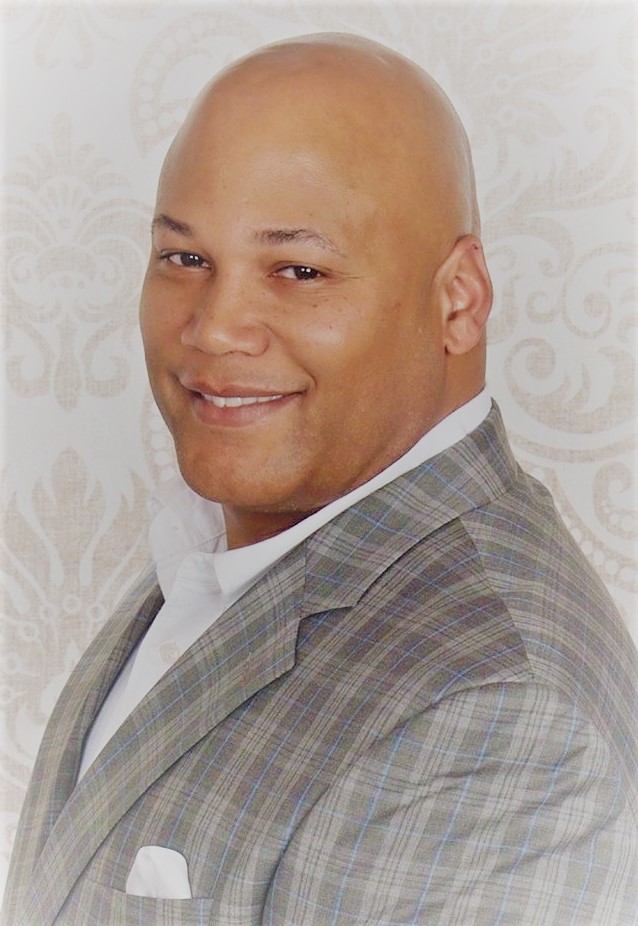
Gholston may have one of the best jobs in the company – leading a team of more than 5,000 people across three shifts in building the Ram 1500, the most awarded light-duty truck in America.
A 34-year veteran with Stellantis, Gholston started his career as a foundry technician, before moving to Detroit Axle in 2001. He spent several years building iconic Jeep vehicles in Toledo before joining the Sterling Heights Assembly Plant (SHAP) team in 2018, where he served as center manager. After learning the ropes, he was appointed deputy plant manager, ultimately assuming the plant manager role in 2021.
Gholston is a graduate of Stellantis’ Manufacturing Leadership Development Program, in which participants complete 4-month long rotations in six different manufacturing divisions in Detroit area facilities while pursuing an advanced degree.
“I’ve always equated success with having a pathway to increase your knowledge,” he said. “I have been fortunate enough to capitalize on those opportunities. There aren’t many African American plant managers – especially in assembly – so this is a role I take seriously.”
Gholston encourages young people entering the profession to seek a role model – even if it’s someone not in the same profession. He credits his parents for recognizing that he needed a mentor and enrolling him in the Center for Leadership Development when he was in high school. It was there that he learned key problem solving skills, which are critical in his day-to-day role.
Gholston is an advocate for advancing diversity at the company, participating in recruitment activities at Historically Black Colleges and Universities to connect with students unfamiliar with opportunities in the automotive industry.
Tommie Tounsel
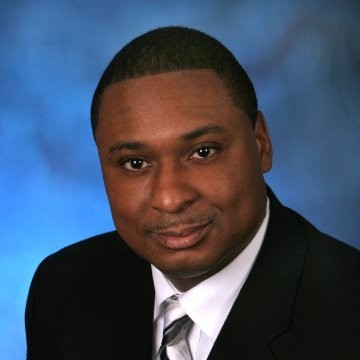
Tounsel is the other half of the dynamic duo who keeps the lines running at SHAP, working alongside Gholston as deputy plant manager.
A graduate of both Wayne State University and Michigan State University, Tounsel brings a wealth of manufacturing experience to his position, mostly from the stamping organization. He joined Stellantis in 1998 as a production supervisor at the Sterling Stamping Plant (SSP) and quickly demonstrated his skill and leadership abilities, leading to successive promotions across the operation. In 2015, Tounsel took a position as manufacturing engineering manager at Warren Stamping, seven miles south of where his career started. He was promoted to plant manager there a few years later.
In his positions, Tounsel has traveled all over the world, visiting different facilities to learn and gain perspective about manufacturing processes. As a result of those experiences, he has been able to bring best practices back to his facilities to improve the efficiency of the operations.
Tounsel, who has his sights set on one day becoming part of the company’s executive leadership team, believes that Stellantis has made great strides in developing African Americans interested in automotive manufacturing.
“When I first started, there weren’t many people who looked like me in management,” said Tounsel. “Within the last few years, the company has really focused on providing opportunities to hire and grow all people.”
His philosophy for being a successful manager? Make time to coach and mentor those around you.
“You have to seek out the subject matter experts,” said Tounsel. “I’ve been fortunate to have bosses and mentors that took the time to help me be successful, and I believe it is important to pay it forward. I now have the opportunity to develop those with aspirations for career growth.”
Edward Daniels
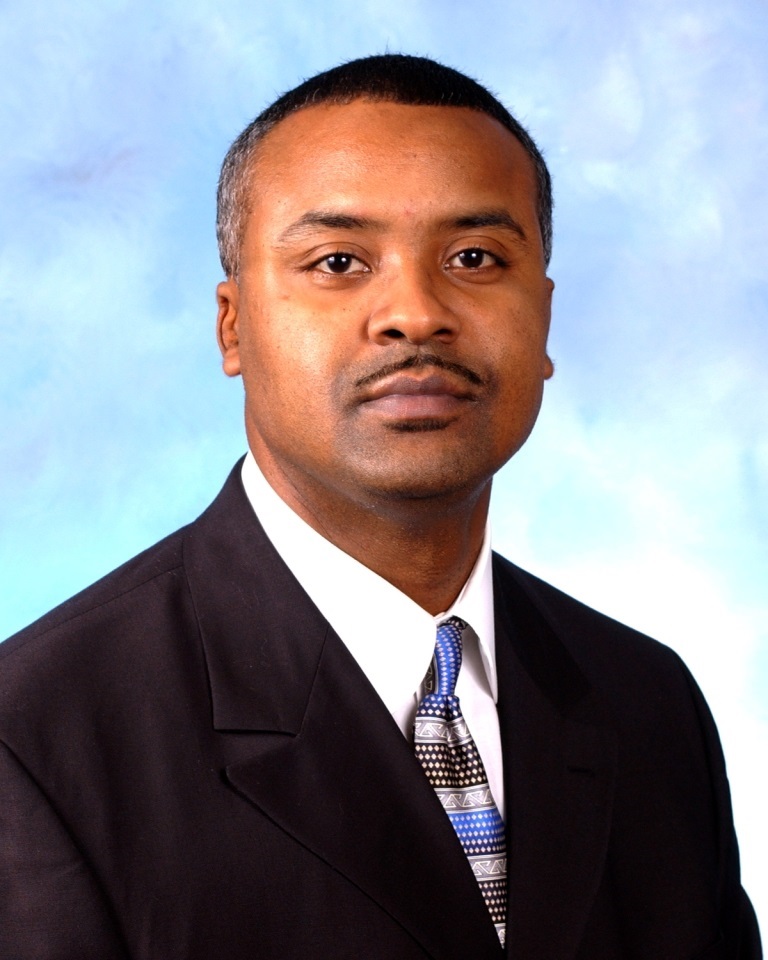
When Tounsel moved to SHAP, Daniels took his place as plant manager at Warren Stamping, a position he has been working toward since he joined the company in 1997.
With a goal to one day join the management team, Daniels went from production operator to production supervisor after just 90 days on the floor, emerging as one of the top performing supervisors in stamping operations. As his career advanced, he spent time at both of the company’s Michigan-based stamping facilities. In 2006, Daniels was promoted to assembly center manager at WSP, before transitioning two years later to center manager of the press room.
The Langston University graduate and two-time All-American college quarterback embraced the competitive nature of manufacturing, which he compares to his athletic background.
“I was very competitive with my peers when I joined the management team,” said Daniels. “Every day you had to prove yourself. I embraced it.”
Recognizing Daniel’s leadership potential, the company selected him to pursue a master’s degree as part of the executive MBA program. Juggling work, school and family, he learned the importance of time management and building a strong team around him to achieve success.
“I learned to put my trust in the people around me, especially the team leaders on the shop floor,” said Daniels. “You must recognize the power of the production operator. They are the bloodline to our company’s success.”
After receiving his MBA, Daniels continued to assume roles with greater responsibility at SSP until he was tapped to take the reins at Warren Stamping in 2022, finally accomplishing his goal.
But what he is most proud of is watching those he’s invested in and mentored grow their careers with Stellantis. For that reason, he attributes approachable leaders and staying flexible with opening the door to opportunities for Black people at Stellantis.
“The company has provided many more opportunities over the last few years regardless of your race or gender,” said Daniels. “If you can deliver, Stellantis will invest in you.”
His advice to those interested in finding success in manufacturing, “Be patient and invest in the team around you. Stay engaged and trust the process.”
Caron Recker
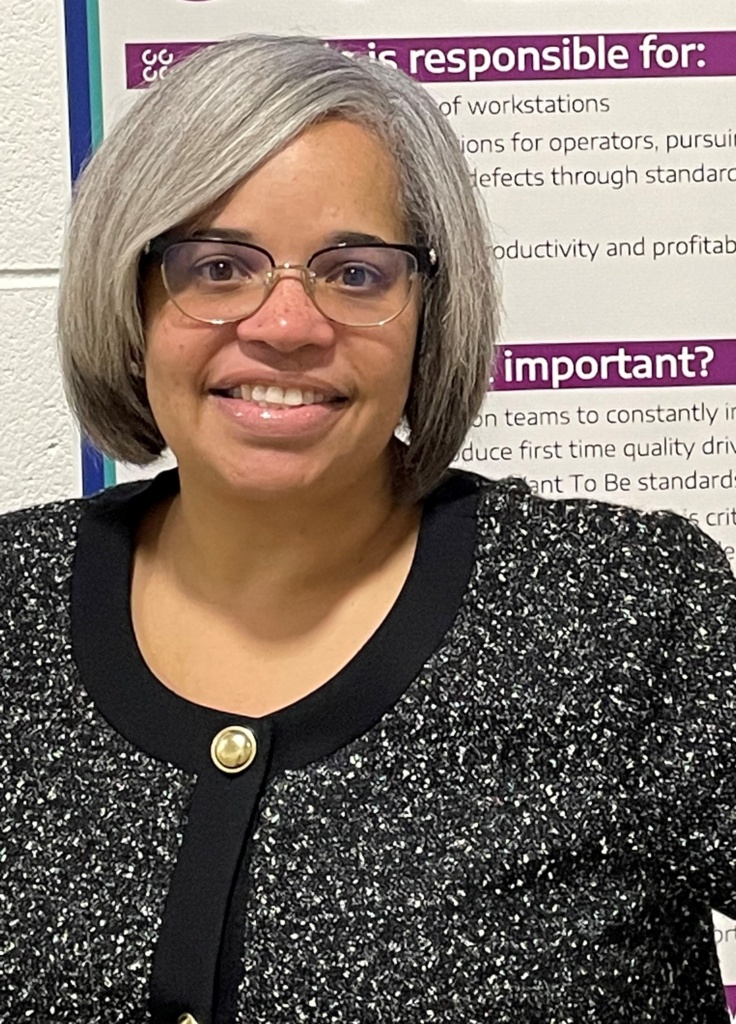
A lifelong Detroiter, Recker has spent much of her manufacturing career working at the two plants in the heart of the city, making an impact not only on the shop floor but in the community.
But that’s not where her career started.
Recker joined the company in 2006 as a production operator at the engine plant in Dundee, Michigan, a farm town about an hour south of Detroit. She was quickly promoted to a manufacturing controls engineer and would walk the line, talking to team members and helping troubleshoot problems. She left the company in 2009, but returned to Dundee Engine in 2012 as a business unit leader.
Recker stayed in powertrain until 2015 when an opportunity became available at the Jefferson North Assembly Plant (now the Detroit Assembly Complex – Jefferson (DACJ)). So, she headed back to her hometown and joined the assembly division as a business unit leader in chassis. She held many roles at both DACJ and its sister plant, Mack Assembly, including operations manager and global professional maintenance lead. One of her biggest career accomplishments was helping Jefferson achieve the bronze award level in the Company’s former production methodology in 2018. In 2022, she was promoted to her current role as North America Stellantis Production Way shop director for general assembly, responsible for implementing the Company’s new manufacturing system across the assembly plants.
Recker is passionate about developing the next generation of manufacturing leaders. She helped establish an Advanced Manufacturing Academy at Detroit’s Southeastern High School and every summer hosts Southeastern students as part of an internship program at the Detroit Assembly Complex. The program she developed educates students about careers in manufacturing while building life skills like conflict resolution and money management.
“I love seeing a light turn on in the students’ minds,” Recker said. “When they get engaged, I know that’s the future of our industry.”
She encourages students to always keep a goal in mind, have a plan and stay on track.
“It’s never too late to start,” she said. “You might not start young, you might be derailed, but you can always restart. Don’t ever stop trying.”
In addition to supporting students, Recker is also co-chair of Stellantis’ Women in Manufacturing Business Resource Group. She believes Stellantis is advancing roles for women in manufacturing, with an increased focus on diversity.
“There are new initiatives implemented for marginalized groups such as Black women,” she said.
Trezelle Jenkins
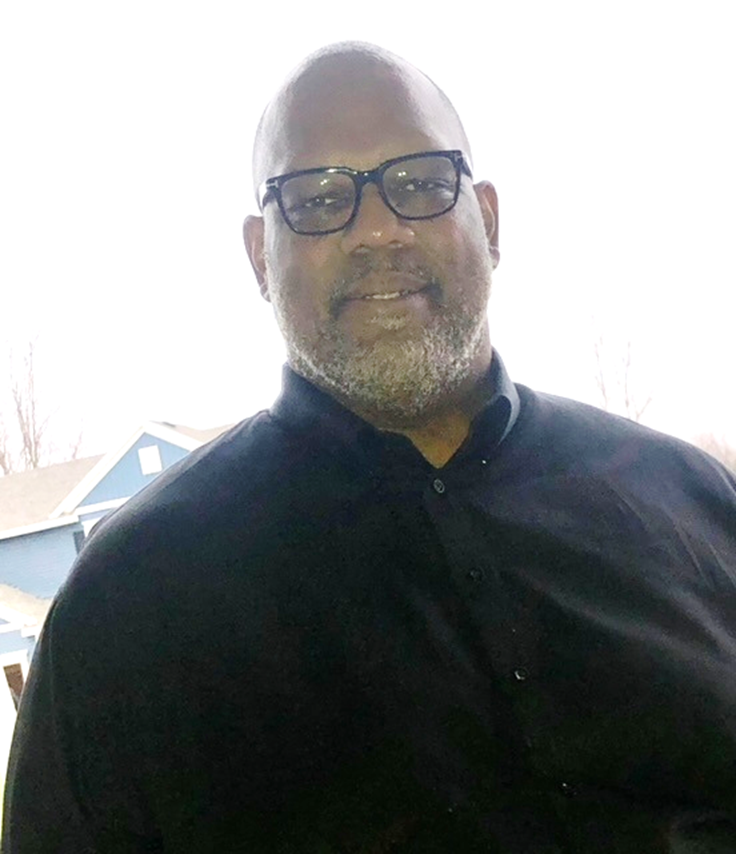
Jenkins took a very unlikely career path to becoming the first Black plant manager at the Toledo Assembly Complex that included stints in the NFL and as a restaurant owner.
After playing offensive tackle at the University of Michigan, Jenkins was drafted by the Kansas City Chiefs, where he played for a few years.
When he hung up his cleats, he moved to Detroit and opened three franchises of Harold’s Chicken and Fish, the largest Black-owned franchise from his hometown of Chicago. He sold his franchises five years later and started his career in manufacturing as a production supervisor at the Warren Truck Assembly Plant (WTAP), when the Company was adding a third shift.
“A friend called me and told me about the opportunity at Warren Truck,” Jenkins recalls. “He said the plant was looking to hire about 50 supervisors.”
He got the job and two years later was promoted to area manager and moved to the Sterling Heights Assembly Plant (SHAP). Amid the economic downturn of 2008-2009, Jenkins left the auto industry and spent the next decade in operations and plant manager roles for various battery and aerospace manufacturing companies.
Just as Jenkins was considering leaving the aerospace industry, the same friend that told him about the job at WTAP nearly 20 years earlier told him about a new opportunity at Stellantis.
“I am proud to be the first Black plant manager at the Toledo Assembly Complex,” Jenkins said. “This community and this workforce take a lot of pride in building the iconic Jeep® Wrangler and Gladiator. It’s in their DNA.”
It is Stellantis’ entrepreneurial spirit that motivates Jenkins.
“As plant managers, we are encouraged to drive the business with an ownership mentality – treat it like it’s our own,” Jenkins said. “I liked the term ‘CEO of your own facility’, being empowered to make the decisions you feel are best based on the direction of the company.”
Early in his career, Jenkins battled stereotypes related to his athletic background. Many people expected him to not put in the work, but his determination pushed him through. That determination and drive for continuous improvement helped him earn his MBA and Six Sigma Belt, a certification in techniques and tools for process improvement.
He encourages young people who are considering entering the automotive industry to, “be honest with your boss about what you would like to do and what you would like to try.”
“Your boss will support you as long as you are honest,” said Jenkins. “Understand the requirements to reach the next step and be up front about your goals and aspirations. Don’t be afraid to get the training to be an appealing candidate.”
Christopher Fields
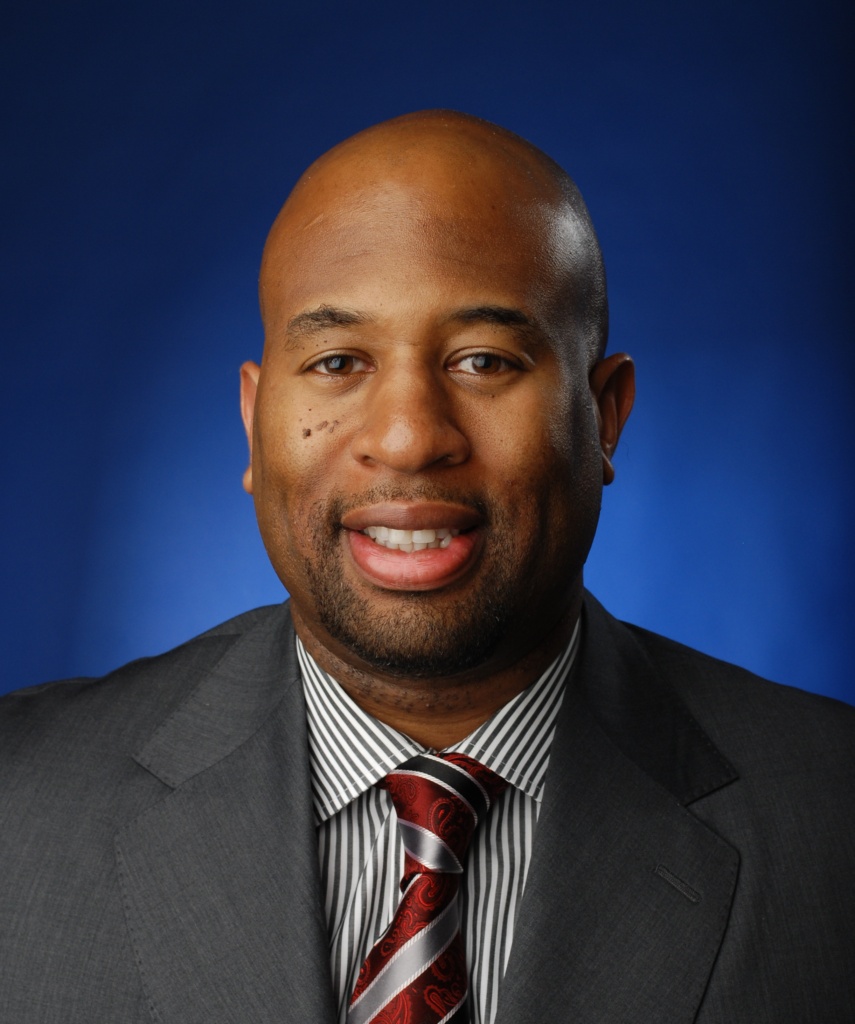
Another University of Michigan alum, Fields first joined Stellantis in 1996, then known as Chrysler Corporation, as an hourly summer vacation production operator at the McGraw Glass Plant in Detroit, Michigan and was promoted into management in 1997 as a production supervisor.
These experiences helped lay the foundation for a career that has spanned more than 25 years in human resources and employee relations.
From 1999 to 2008, Fields put those people skills into practice in various positions of increasing responsibility in HR and employee relations at several of the Company’s facilities including the Toledo Assembly Complex, Mack Avenue Engine Plant, Warren Truck Assembly Plant, Jefferson North Assembly Plant, and Mopar Parts Distribution Centers.
After 12 years with the Company, in 2009, Fields left the auto industry to work in employee relations at Federal-Mogul Corporation in Southfield, Michigan and BP oil and gas in Houston, Texas.
Fields returned in 2020 ahead of the merger between FCA and PSA that formed Stellantis as the vice president of employee relations for North America.
A year later, he was promoted to senior vice president, employee relations For North America, gaining additional responsibility for HR for all U.S. manufacturing locations.
“Since returning to the Company and the merger with PSA, senior management has been increasingly open to diversity,” said Fields. “When I took over the SVP role, I was able to partner with our North America head of manufacturing to put a focus on increasing the diversity in manufacturing leadership roles. And now, two of our three NA manufacturing divisions are led by women and we hired two diverse plant managers – a female and ethnically diverse male. Based on their merit, I am extremely proud of these diverse leaders and will continue striving to make Stellantis an employer of choice when it comes to diversity, equity, and inclusion.”
“Having started my career at Chrysler, then leaving – this return makes it full circle for me,” said Fields. “I’ve always loved the auto industry and knew I’d come back.”
Bennie Sims
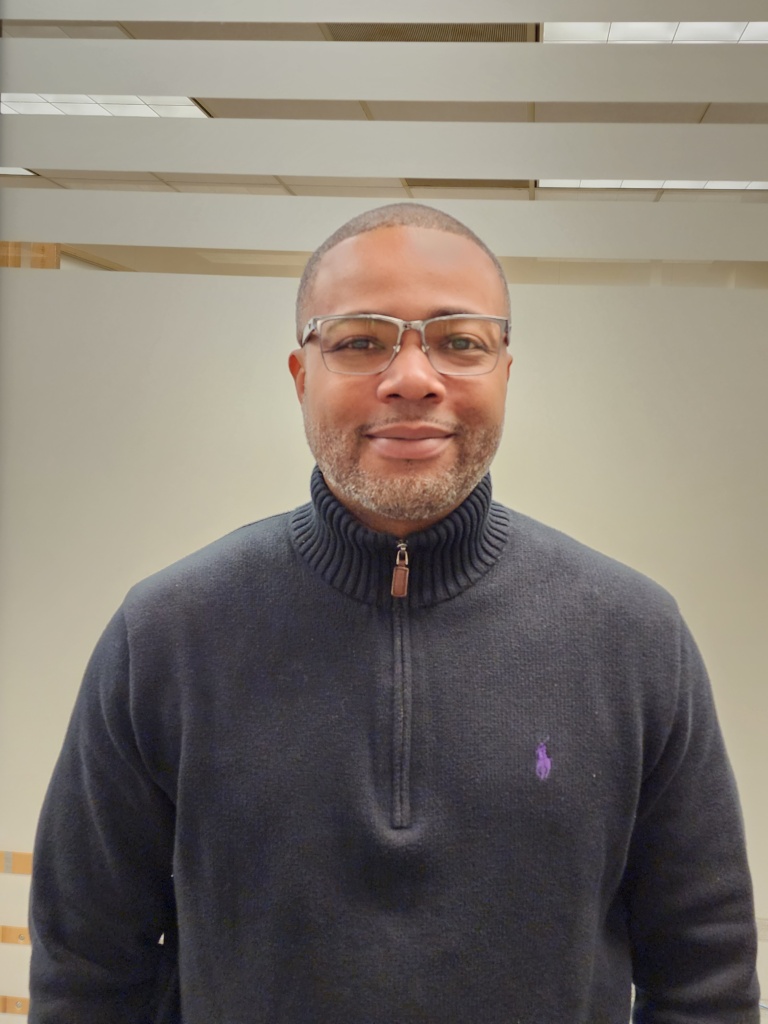
Another leader who made a return to his starting point is Sims, human resources manager at SHAP.
He has a unique connection to the home of the Ram 1500. Sims’ mother worked in the employment office at SHAP when he joined Stellantis in 2005 as a production supervisor. She was a major influence on his career, always encouraging and celebrating his accomplishments. In fact, she predicted his eventual success.
“One day while walking out of the building with my mother, she pointed to the HR manager’s office and told me it would be my office at some point in my career if I continued to invest in myself and the Company,” said Sims. “Fulfilling that commitment is one of my most profound memories with Stellantis. I am where I belong.”
In his early days, Sims quickly established himself as a top performing supervisor at SHAP, gaining a comprehensive understanding of production operations, and was appointed as the business unit leader in the plant’s paint shop in 2009. His career transitioned from production supervision to labor relations a year later when he accepted a labor relations position at the Jefferson North Assembly Plant. After stints in labor and talent management at Jefferson and WTAP, Sims’ career shifted focus again in 2019, joining the Company’s human resources team.
“The transition from production supervision to labor relations was the biggest adaptation of my career,” said Sims. “Two weeks after relocating to Jefferson, a second production shift was added, and suddenly, I was responsible for 1,400 employees. My ability to adapt on the fly has been instrumental to my development in every position I’ve held with Stellantis.”
He would take over as the human resource manager at the Trenton Engine Complex in 2021 before ultimately returning home to SHAP in 2022, inheriting responsibility for more than 5,000 employees and ensuring they are treated fairly with access to the resources they need to succeed. Sims has earned a reputation for his compassion and commitment to the well-being of the Stellantis workforce.
He attributes his continued success with Stellantis to the support system he developed while advancing his career.
“I’ve been fortunate to have a cast of colleagues who share similar experiences as me,” said Sims. “To this day, I still lean on my mentors for advice and guidance.”
Sims’ advice for people starting out in manufacturing: have an open-mind and willingness to learn, be innovative and ask questions.
“There are more opportunities now than ever before for Black men and women,” said Sims when asked whether the Company has become more inclusive and diverse. “Diversity and inclusion are not just buzz words anymore. They are key to the Company’s evolution and success.”
His journey to becoming the HR manager at SHAP is a testament to the power of hard work, dedication and the influence of family. Sims still feels his mother’s impact on his career.
Lori Otis
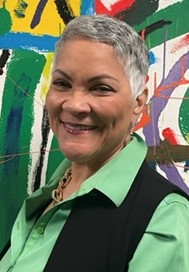
The daughter of a production operator at Trenton Engine, Otis wanted to be a professional ballet dancer.
After graduating high school, she moved to New York City and joined the Alvin Ailey Dance Company where she performed as an understudy and waited tables to make ends meet.
When she decided to move back to Michigan, she became a cheerleader for the U.S. Football League’s (USFL) Michigan Panthers.
When she retired her pom-poms, Otis went back to school and after graduation started working in pharmaceutical sales. “I was traveling a lot, which was difficult for my family,” Otis said.
She decided she needed a career with less travel, so she became a customer service center representative (a salaried bargaining unit position), working out of Chrysler’s Highland Park headquarters. While there, Otis focused on expanding her network – which helped her move into HR. Her mentors introduced her to different parts of the organization and encouraged her to get her master’s degree. Her first role in HR was in executive learning and development.
After that she moved to Warren Truck where she was a salary administrator.
“It was at Warren Truck that I developed a passion for manufacturing – the smell, grit, the people that make the cars, the whole process from beginning to end is mind boggling,” Otis said.
“The people behind our products give it their all. The people in the plants believe in our products. Each plant is its own family. I’ve always admired this about manufacturing,” she said.
After Warren Truck, she moved to a corporate role as an HR generalist, then to the diversity office as an investigator and eventually a senior manager in that department.
Otis made her way back to manufacturing, serving as the HR manager at Sterling Stamping for five years, then at the Sterling Height Assembly Plant (SHAP). “I always knew I wanted to go back to the plants,” she said.
From SHAP, she moved on to be a senior human resources business professional (HRBP) overseeing all of powertrain engineering, then press shops and dies, manufacturing engineering and facilities. In January 2021, she became the senior HRBP overseeing manufacturing.
“This role helps me help families,” she said. “Thinking back to my own experiences growing up and seeing how difficult it was when my dad was laid off, I am humbled I can help families out.”
Recognizing the impact the company has on families and the community, Otis has helped coordinate many fundraisers. She is most proud of the Breast Cancer Fundraiser at Sterling Stamping every October, which is the second leading breast cancer outreach program in the Company.
“This company gives you a platform to have an impact not only with our employees, but to groups who wouldn’t have exposure to the resources we can provide,” Otis said.
Emar Stringer
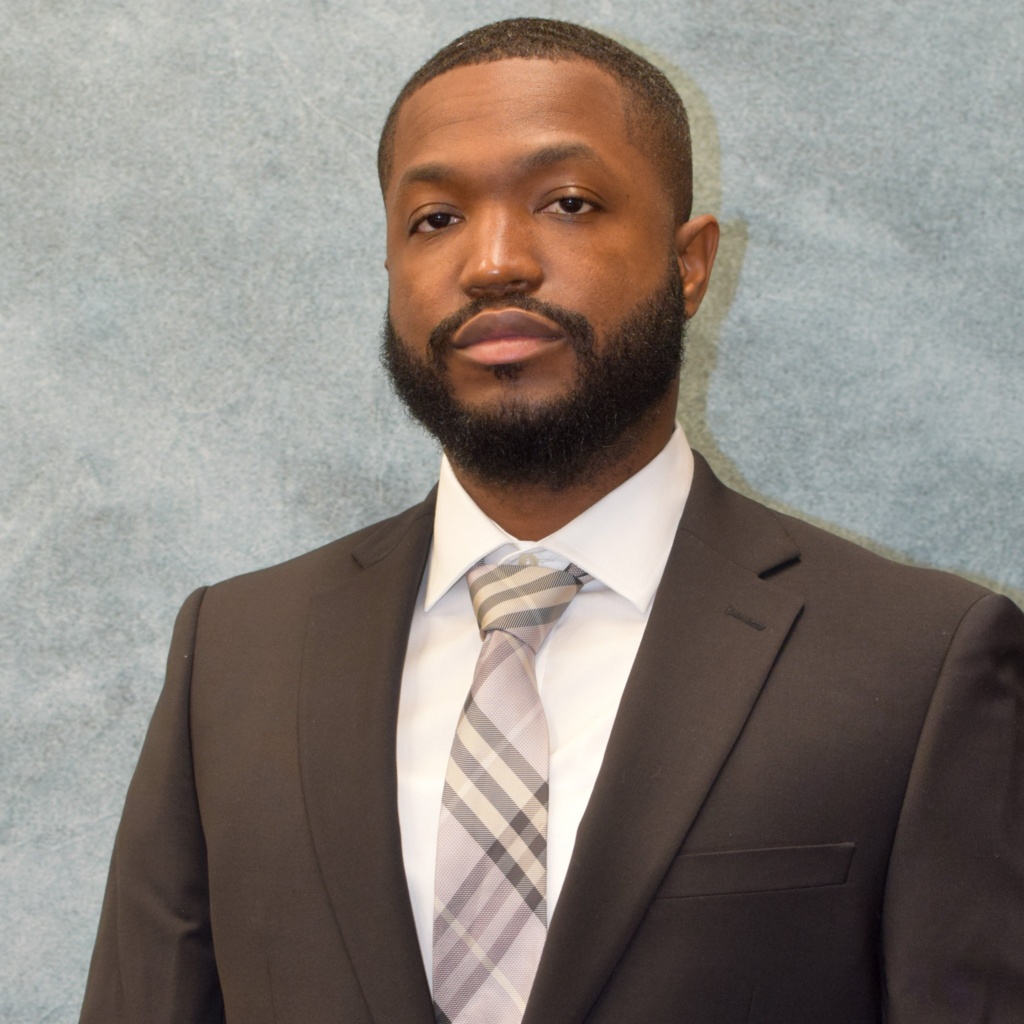
Like Otis, Stringer, assembly center manager at Sterling Stamping, didn’t always dream of a career in the automotive industry.
As a student at Eastern Michigan University, his original major was in biology influenced by his mom who was a nurse.
“I’ve always been a strong student and had a love for academics,” Stringer said. “After a lot of thought, I realized I could still have a love for health and medicine like my mom, but that I’d be better suited for a career in engineering.”
That’s when Stringer switched his major and pursued his Bachelor of Science in Manufacturing Engineering. After graduation, he took a job with the state of Michigan as a civil engineer before joining the team at Warren Stamping in 2012 as a quality engineer.
He was promoted several times in the engineering department while there. During this time, he completed his Master’s degree in quality management. After nearly a decade, he knew his hard work and dedication to improving quality had paid off when he was offered the assembly center manager job at Sterling Stamping.
“Being promoted to a position in senior leadership is a major accomplishment for me, especially since I pride myself on being a versatile and dynamic leader,” Stringer said. “Knowing that the leadership was advocating for me gave me the confidence to apply and ultimately be awarded the position of which I am very grateful.”
Stringer enjoys the fast-paced environment and the opportunity to develop people in the plant. As he mentors those just starting their career in manufacturing, he urges them to have patience.
“Focus not only on upward career development, but broaden your knowledge base and skillset,” he said. “Take a few lateral career moves to help you develop a broader sense of the industry. The key to success in manufacturing is not just understanding your scope, but also how your scope influences others.”
Stringer believes Stellantis is at the forefront of diversity, putting its Black employees in positions to be leaders. When he first started in stamping, there wasn’t a lot of diversity in the leadership and now there is.
“I can see others coming up in the organization, too,” Stringer said. “This is a tribute to the work Stellantis is doing – they gave us a platform – someone to look up to. I can see it, I can feel it and I can embrace it.”
Curtis Booth
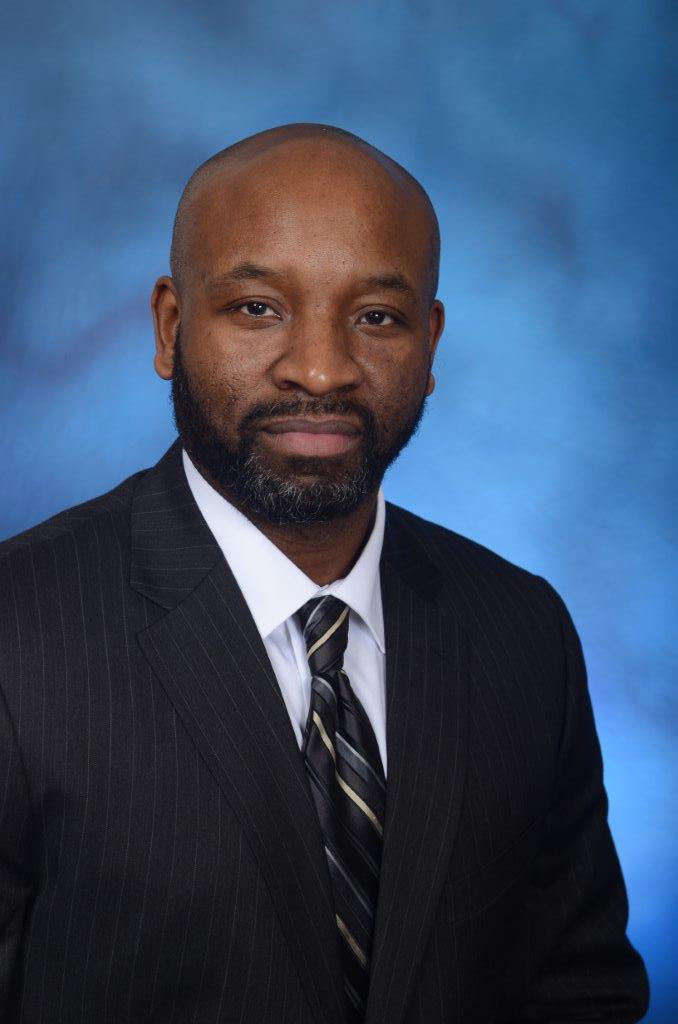
Someone else who knows his way around a stamping plant is Booth, press room center manager at Warren Stamping.
A nearly 30-year veteran in stamping operations, Booth, joins Stringer as a sheet metal subject matter expert. His passion for the die-making trade developed shortly after he joined Chrysler as a temporary production operator at Warren Truck in 1994.
After becoming a full-time employee, he jumped at an opportunity to enter a four-year skilled-trades apprenticeship program. Upon graduating from the program a year early, Booth began his first stint at Warren Stamping as a die-maker.
After gaining experience on the production and maintenance sides of the house, Booth joined the management team in 2001 as a new model die construction supervisor. He continued to demonstrate his knowledge of stamping operations, leading to many promotions throughout the division.
In 2014, Booth was assigned to the Mt. Elliott plant, where he served as the die operations manager, planning manager and workplace organization lead.
“It was one of the most gratifying experiences of my career,” Booth said. “I was able to engage and educate the workforce about the importance of the Company’s production methodology before the plant idled in 2018.”
It was at that time that Booth took a step back from plant life and moved to corporate, where he served as a program manager for four years. During this time, he worked on cost, timing and scope for launching production tools. Booth continued to pursue new opportunities in manufacturing that aligned with his career ambitions, finally landing at Sterling Stamping as the press room area manager.
His career would continue to advance, being tapped to step-in as the acting quality center manager at Warren Stamping before ultimately taking the reins in his current role, a goal he’s worked tirelessly to achieve over the past 30 years.
Booth believes that Stellantis has come a long way in the development of Black people pursuing careers in manufacturing.
“As my career progressed, I saw a lot of growth in the advancement of Black people in manufacturing leadership positions,” Booth said. “When I started my apprenticeship, there were only a few Black men in my program. Fast forward to today, you can see the progress the Company has made across the board. Our Black employees have more opportunities, and with those, we’ve been able to perform at a high level.”
Booth always makes time to mentor and support his team, passing on his wealth of knowledge and experience to the next generation of manufacturing professionals. He attributes part of his success to the incredible mentors he’s had throughout his career.
“I’m very fortunate to have been mentored by some of the Company’s finest,” Booth said. “These men took me under their wings and provided me career advice that I carry with me every day.”
And he pays it forward by mentoring and coaching young people in his community.
“I take advantage of every opportunity to mentor our youth,” said Booth. “Whether it’s mentoring elementary and middle school students in Detroit, providing guidance to the youth ministry at church, or coaching football in the inner city, it’s important to give back what was given to me from my mentors: knowledge, professionalism, and respect.”
Tobin Williams

With a career that has spanned more than three decades, three continents, and the opportunity to ring the opening bell at the New York Stock Exchange, Williams has a passion for driving change and creating workplace cultures built on respect and opportunity.
Williams joined Stellantis in 2022 as senior vice president of North America human resources after a 35-year career with GM. There he held various HR leadership positions in the U.S. and abroad, including assignments in Thailand and India, before retiring in 2017.
But unlike many people who retire after a successful career, Williams wasn’t quite ready for the calm and relaxation that comes with leaving the workforce.
After three years, he decided to jump back in and give healthcare a try, serving as vice president of HR for the acute care and physician group at ProMedica Healthcare Systems in Toledo before becoming part of the Stellantis leadership team.
Williams is a strong advocate for social responsibility, leading the Company’s talent and leadership development initiatives and supporting the goals set forth in its long-term strategy, Dare Forward 2030.
Outside of work, he dedicates a significant amount of his free time to supporting charities.
“I proudly serve on the board of many charitable organizations, including Big Brother and Big Sister Detroit,” Williams said. “I have a passion for mentoring our youth. It’s important that we continue to encourage and motivate them.”
He pours that same passion into developing those interested in advancing their careers within the company and the industry. He credits remaining flexible and open to new opportunities as the keys to his success and encourages others to build a broad skillset by expanding their knowledge and perspective.
He believes Stellantis has an authentic passion for diversity and inclusion. “There is a diligence from our leadership in the development of the Company’s diverse employees,” Williams said. “I have seen the commitment from our leaders to ensure there is appropriate representation throughout the organization. This action simply makes our business better.”
One of his proudest memories at Stellantis was ringing the opening bell for the New York Stock Exchange on Wall Street to celebrate the launch of the inaugural collective of the first National Black Supplier Development Program, a group of 15 Black-owned businesses representing geographic diversity and a range of disciplines and commodities.
“Ringing the bell was a once in a lifetime opportunity for me,” Williams said. “Here I am, in front of the world, showcasing a program that truly demonstrates Stellantis’ efforts to be an industry leader in diversity and inclusion.”
©2025 Stellantis4Detroit All Rights Reserved.
